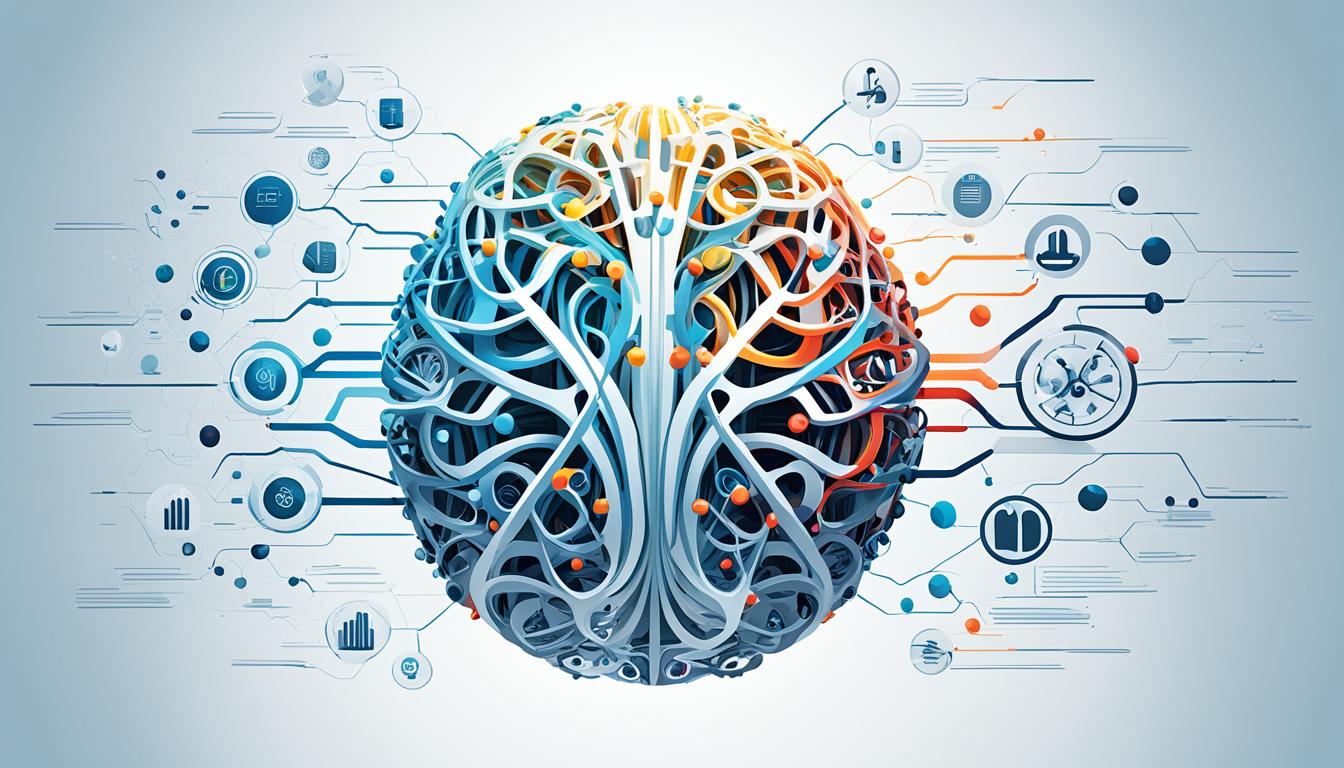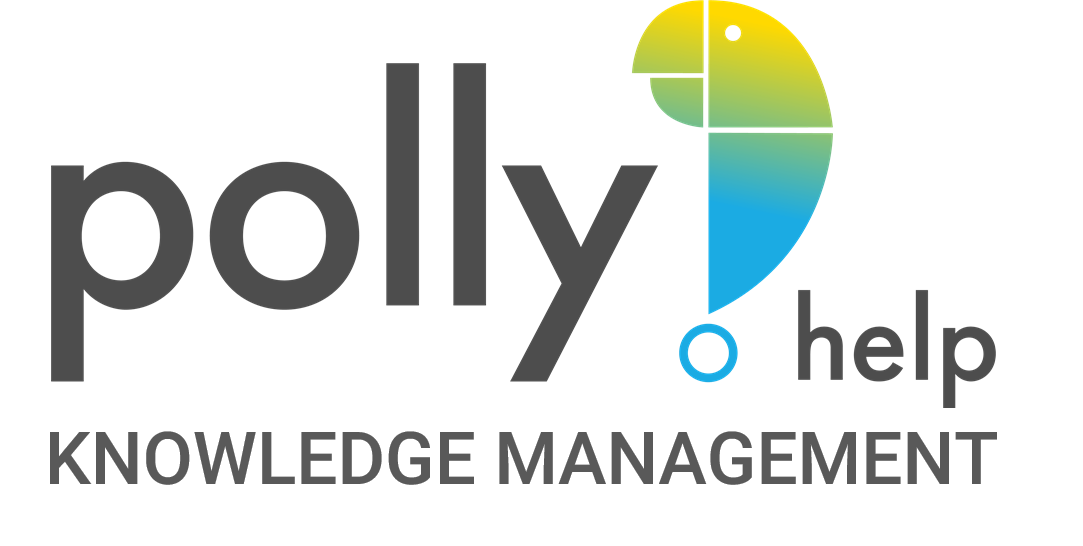The landscape of knowledge management practices is being reshaped by AI. Organizations have moved away from the old, inefficient methods. Now, artificial intelligence knowledge management systems enhance how information is stored, organized, and accessed, creating agile knowledge environments.
Key Takeaways
- AI transforms knowledge management practices by automating analysis and streamlining insight generation.
- It offers accurate content categorization and tailors knowledge distribution to individual needs.
- Predictive analytics and smart search functions are key AI tools that revolutionize knowledge management.
- AI reduces errors, ensuring knowledge systems are more dependable and robust.
- Implementing AI in knowledge management is vital for staying competitive in the modern digital world.
- Moreover, AI elevates KM from a mere operational tool to a strategic organizational asset.
A Paradigm Shift in Knowledge Management with AI
The knowledge management scene is dramatically changing, thanks to artificial intelligence technologies. This change is moving us away from old ways, maximizing how information in organizations is used.
Understanding the Traditional KM Landscape
In the past, knowledge management was labor-intensive. It relied heavily on human effort, from data gathering to building databases. These systems were slow and made finding information difficult, hurting productivity.
Rise of AI: A New Frontier in KM
AI has introduced a major shift in managing and sharing knowledge. It brings new features like automatic data classification, improved search abilities, and an understanding of what users are looking for. AI’s impact on knowledge management is significant, leading to a smarter and more dynamic approach.
AI systems can also tailor content summaries and predict future information needs. This capability is a game-changer for leaders, giving them insights that can influence smart decisions and improve organizational efficiency.
The integration of AI with KM shows a clear departure from older methods. AI enhances the speed, effectiveness, and precision of knowledge initiatives. These advancements equip organizations with the tools to boost innovation and productivity significantly.
AI in knowledge management: A Synergy of Data and Insights
The sophistication of AI is transforming knowledge management. By utilizing the implementation of AI in knowledge management, companies are experiencing a groundbreaking synergy. This synergy elevates traditional data analysis, paving a new path for data-driven decision making. The deep fusion of AI with existing systems significantly enhances traditional approaches. It aligns vast data with actionable insights from AI algorithms’ precision.
In intelligent knowledge discovery, AI leads the way. Machine learning and Natural Language Processing (NLP) are expanding knowledge collection, interpretation, and distribution boundaries. Enhanced computing power and advanced algorithms allow for the swift processing and analysis of large data sets. They uncover patterns invisible to human analysis. This capability enables companies to quickly adapt to new trends, securing a vital competitive advantage.
- Advanced machine learning models automate knowledge categorization and identification.
- Natural Language Processing interprets complex queries, delivering precise information efficiently.
- Real-time data analytics powers decision-making processes, reducing the time from insight to action.
Visionary companies embracing AI witness significant gains in efficiency, productivity, and innovation. Beyond computational power, AI excels at deriving meaningful insights from data. It paves the way for decisions shaped not only by data but by the insights it provides.
| Traditional Knowledge Management | AI-Enhanced Knowledge Management |
|---|---|
| Manual data categorization | Automated data classification |
| Time-intensive information retrieval | Instantaneous, relevant data extraction |
| Static data interpretation | Dynamic, context-aware analysis |
| Limited pattern recognition | Extensive pattern identification and forecasting |
Integrating advanced AI methodologies into knowledge management’s core gives companies unmatched flexibility. They become more prepared for today and the unpredictable future. Here, intelligent knowledge discovery and data-driven decision-making are pivotal to success.
Automating Information Taxonomies with AI
In the rapidly evolving domain of knowledge management, AI solutions for knowledge management are essential. They excel in organizing information methodically. With AI’s advanced tools, companies can overhaul their data processes. This leads to improved information taxonomies.
How AI Streamlines Content Tagging and Classification
AI prominently transforms knowledge management by enhancing content tagging. It leverages deep learning to delve into content, context, and semantics. As a result, each data piece is accurately tagged. This advancement boosts consistency in datasets and improves user search and discovery experiences.
Reducing Manual Effort through Automation
Automated information taxonomy greatly cuts down on data managers’ workload. It minimizes the need for manual document categorization. Consequently, AI allows teams to dedicate their efforts to strategic tasks. The following table contrasts traditional methods with AI-driven knowledge management.
| Attribute | Traditional Knowledge Management | AI-driven Knowledge Management |
|---|---|---|
| Efficiency | Time-intensive manual tagging | High-speed automated tagging |
| Accuracy | Prone to human mistakes | Reliable precision thanks to AI |
| Scalability | Constrained by human resources | Leverages machine learning for growth |
| Content Discovery | Dependent on specific keywords | Enables semantic, context-aware searches |
The modern data landscape challenges organizations to adopt nimble AI solutions. Utilizing AI solutions for knowledge management lets businesses automate and smarten their systems. This approach doesn’t just boost efficiency and precision. It also revolutionizes their information frameworks.
AI-Powered Semantic Search and Content Discovery
Efficiently optimizing knowledge management with AI relies on the growth of intelligent search technologies. By employing natural language processing, AI has revolutionized the way we search. Instead of basic keyword matching, we now enjoy a deeper semantic understanding. This advancement enhances the search experience by providing more accurate and relevant results.
The integration of AI has refined how we search in knowledge management systems. It recognizes the complexities of human language. This capability to understand context and nuances in queries highlights the importance of AI in data retrieval and knowledge application.
- Understanding user intent for precise results
- Sifting through vast data with unparalleled speed
- Delivering targeted, relevant information almost instantaneously
These advancements are key in enhancing efficiency and fostering innovation. They help organizations stay flexible and informed in a rapidly changing, knowledge-driven world.
| Feature | Benefits |
|---|---|
| Contextual Understanding | AI grasps the meaning beyond words, ensuring search results are spot on. |
| Speedy Retrieval | Intelligent search algorithms quickly sift through data, improving response times. |
| Relevance of Data | With AI, finding relevant information is more accurate, avoiding information overload. |
| Continuous Learning | The AI system evolves from each interaction, refining search quality over time. |
By optimizing knowledge management with AI, we usher in a new era of content discovery. We move past traditional search limitations, embracing natural language processing. This advancement accelerates our pursuit of knowledge in unprecedented ways.
Advanced Analytics and Predictive Knowledge in KM
Knowledge management is evolving, thanks to predictive analytics’ remarkable capabilities. Beyond mere data interpretation, they allow for strategic insights in KM. This aids organizations in staying ahead in the fast-paced business world. Predictive analytics gives companies the foresight to plan for future knowledge management systems.
Leveraging Historical Data for Strategic Insight
Predictive analytics examines historical data patterns and outcomes, enabling a nuanced decision-making approach. This process uncovers strategic insights. It reveals success pathways and identifies potential pitfalls in advance. Such insights are essential for a well-prepared future in KM.
Anticipating Future KMS Needs with AI
An integral part of AI, predictive analytics predicts KMS evolution. It prepares organizations to develop systems meeting present and future needs. This forward-thinking ensures organizations remain adaptable and resilient. It’s crucial in an innovation-driven era.
Personalization and Contextualization of KM with AI
AI has transformed knowledge management with two key ideas: personalized knowledge delivery and contextualization in knowledge management. These enhancements mean users get info suited to their specific needs and work context. This adaptation improves efficiency and supports smart decision-making within companies.
Personalized knowledge delivery has several noteworthy advantages:
- It recognizes user behavior patterns, leading to smart suggestions.
- It connects users with experts and resources matching their interests.
- This approach builds custom content streams, increasing engagement and learning.
Meanwhile, contextualization in knowledge management tailors info to job duties and current tasks:
- It sifts through knowledge to reflect specific role requirements.
- Tools provide support based on the user’s current work activities.
- It adjusts resources to match the changing needs of projects and teams.
The table below highlights the synergy between personalized knowledge delivery and contextualization in knowledge management within AI settings:
| Feature | Impact on Personalization | Impact on Contextualization |
|---|---|---|
| Smart Content Curation | Adaptive learning pathways for users based on past interactions. | Resources relevant to the specific tasks or projects at hand. |
| Intelligent Search | User queries lead to tailored search results. | Search results account for the users’ role and current context. |
| Expertise Location | Direct connection to subject-matter experts for personalized query resolution. | Connecting with experts whose skills are relevant to current project requirements. |
| Learning Recommendations | Suggestions based on individual knowledge gaps and preferred learning modalities. | Learning materials that are applicable to immediate and upcoming job challenges. |
The union of personalized knowledge delivery and contextualization in knowledge management signifies that AI’s role goes beyond data expansion. It means delivering deeper, actionable insights for all organization members.
Scalability and Efficiency of AI-Augmented KMS
As the business landscape transforms and data volumes expand, the scalability of AI knowledge management systems becomes crucial. These systems are crafted not just for coping with information growth but also for improving access and utility. This ensures that as a company progresses, its knowledge management capabilities can scale up effectively.
Adapting to Organizational Growth with AI
The integration of AI within knowledge management systems grants them the prowess to digest and adapt to the burgeoned demands of growing enterprises. This progression involves supporting more users, handling voluminous datasets, and executing elaborate analytics. Thanks to AI, these systems evolve to learn and adjust, facilitating seamless adaptation to an organization’s swelling size and evolving needs.
Optimizing KMS for Efficiency and Productivity
By automating previously manual operations, AI technologies redefine KM systems, saving time and resources while enhancing efficiency and precision. AI fosters the creation of dynamic and malleable knowledge bases. These innovations contribute to a productive ecosystem, where efficient search mechanisms and deep analytics are fundamental in boosting productivity and preserving a competitive stance.
- Automated data classification and content analysis
- Intelligent search capabilities with refined algorithms
- Custom analytics that target key performance indicators (KPIs)
This innovative approach to knowledge management is vital for companies aiming to excel in today’s information-centric environment. It ensures that the core framework of knowledge remains strong and forward-looking amidst constant expansion and innovation.
The Strategic Impact of AI on KM
Today’s digital evolution transforms a basic KM operation into a major strategic asset, thanks to AI-driven knowledge management strategy. The blend of AI and KM processes ushers in a new era. This era is marked by enhanced efficiency and effectiveness, fueled by technology’s dynamic capabilities.
AI’s role in automating data analysis and curation lifts organizations. They now enjoy faster decision-making and problem resolution capabilities. This is largely due to AI’s ability to sift through vast data, spotting patterns, and delivering actionable insights swiftly.
AI enhances KM by introducing tools like smart chatbots and predictive analytics. These innovations expand KM’s scope, improving customer interactions, internal processes, and fostering innovation. This pivotal shift greatly benefits customer services and internal procedures.
- Chatbots are providing instant support and guidance, leveraging stored knowledge to offer precise answers to customer inquiries.
- Predictive analytics are forecasting trends, thereby empowering businesses to stay ahead of the curve and preemptively address potential challenges.
- Innovative algorithms are continually polishing knowledge repositories to ensure the material remains relevant and useful, streamlining operations and promoting a culture of continuous improvement.
AI’s contributions to KM highlight a sustainable investment in future strategic alignment with market shifts. This comparison below sheds light on AI’s transformative effect on KM before and after integration.
| Knowledge Management Aspect | Before AI Integration | After AI Integration |
|---|---|---|
| Data Processing | Manual and Time-consuming | Automated and Efficient |
| Search and Retrieval | Keyword-based with Limitations | Contextual and Intelligent |
| Customer Service | Scripted and Static | Dynamic and Personalized |
| Analytics and Insight | Reactive and Historical | Predictive and Proactive |
| Strategic Value | Operational Support | Core Strategic Asset |
Building a Resilient and Forward-Looking KM Strategy
In today’s swiftly changing tech scene, crafting resilient KM strategies is crucial, not optional. The balance between adaptable KM designs and ongoing tech advancements calls for a strategy that integrates continual adaptation with AI. This approach must be embedded within the organization’s knowledge management structure. It ensures long-term viability and future-proofing knowledge management initiatives.
Continual Adaptation of KM Practices with AI
The essence of resilient KM lies in the swift incorporation and application of emerging AI technologies. Organizations enhance their KM effectiveness by routinely updating practices and refining AI models with new insights. This integration of AI within KM enables smarter systems. These systems evolve in harmony with the company, fostering ongoing improvement and refinement.
Future-Proofing KM in an AI-Driven World
With AI’s advancing capabilities, the scope for innovative approaches in knowledge management is vast. The aim is to build a robust infrastructure that stands the test of time, technology, and changing methods. By establishing a future-ready strategy, companies protect their KM tactics from becoming outdated. They prepare to welcome forthcoming waves of innovation.
AI and the Ethical Dimensions of KM
The insertion of AI into knowledge management brings forth more than just technological progress. It introduces the need for in-depth ethical review. Nowadays, ethical considerations in AI for KM are essential, not optional. They ensure technology is used in a way that reflects human principles. Concerns around privacy, bias, and the call for openness are essential in these discussions. They drive us to approach AI’s complexities with ethics in mind.
Addressing Data Privacy in AI-Enabled KMS
Data privacy stands as a pivotal concern within AI-driven knowledge management. Organizations must adhere to strong data protection laws and design AI to respect privacy. This involves careful data management, prioritizing user consent, and meticulous anonymization of personal info. Protecting data from unauthorized access is critical for maintaining stakeholder trust and safety.
Maintaining Ethical Standards in Automated KM Practices
As automation enhances KM practices, sustaining ethics in automated KM becomes crucial. Companies are tasked with crafting non-discriminatory AI that provides fair access and clear explanations. We aim to build a system aligned with our ethical standards, enriching both the ethical status and trustworthiness of Knowledge Management Systems.





